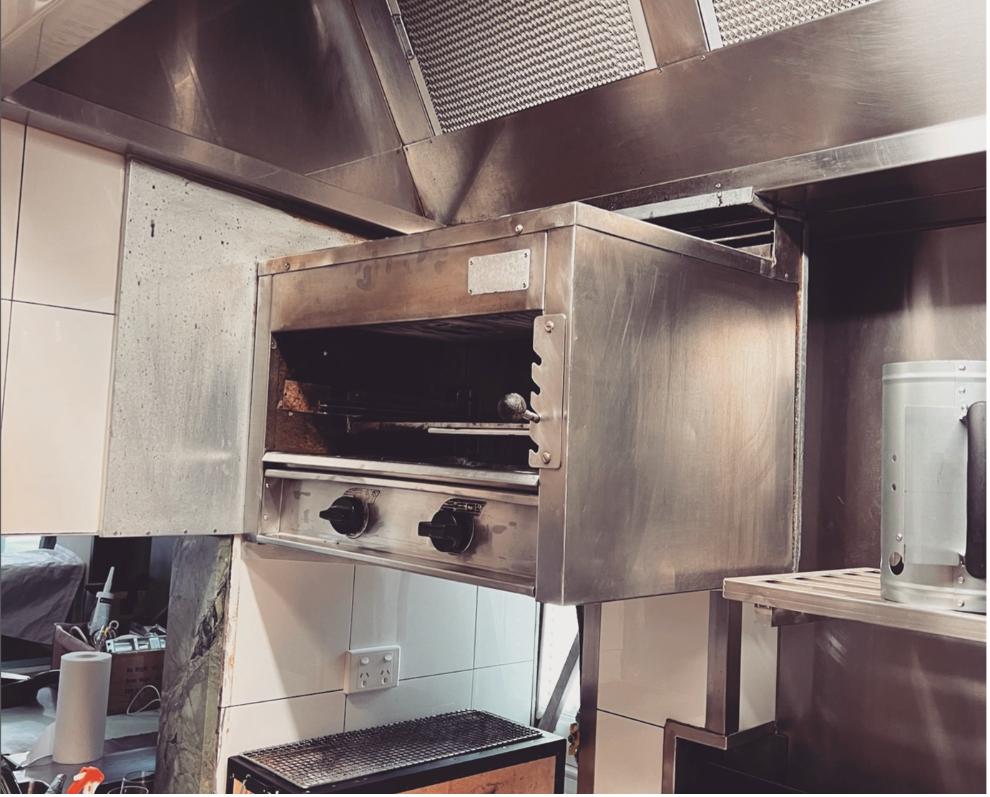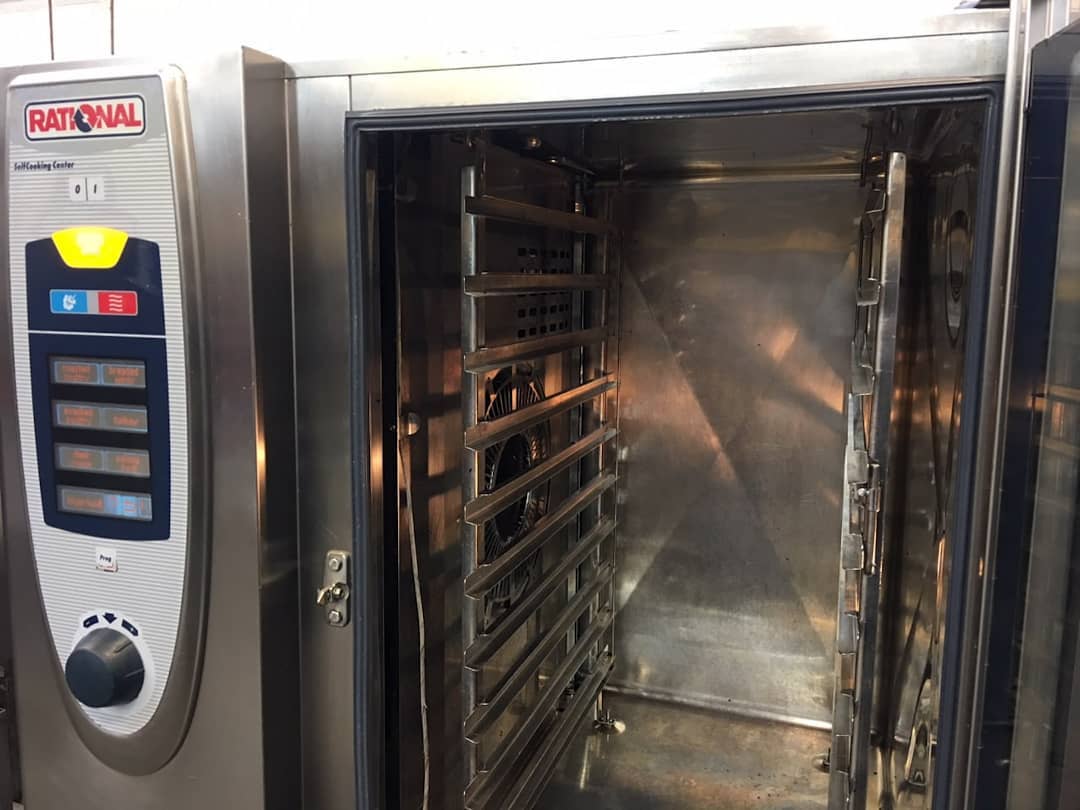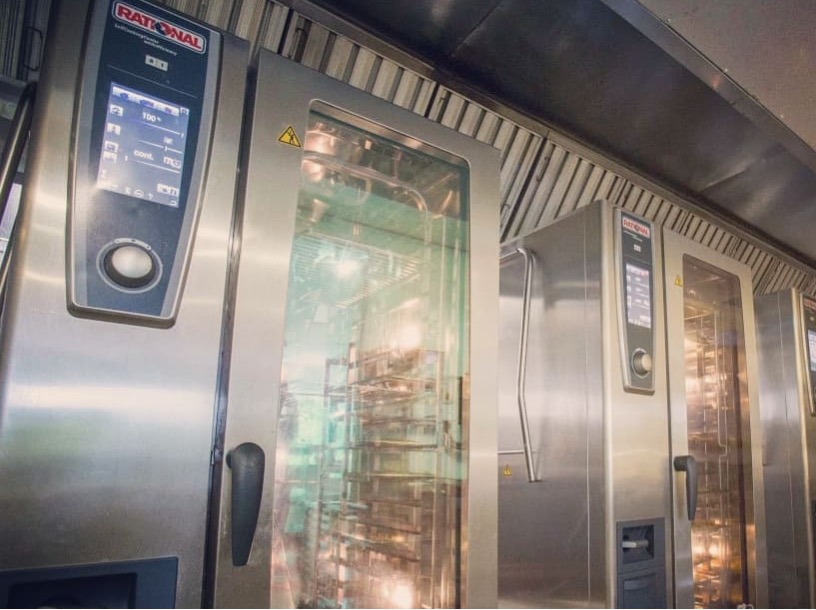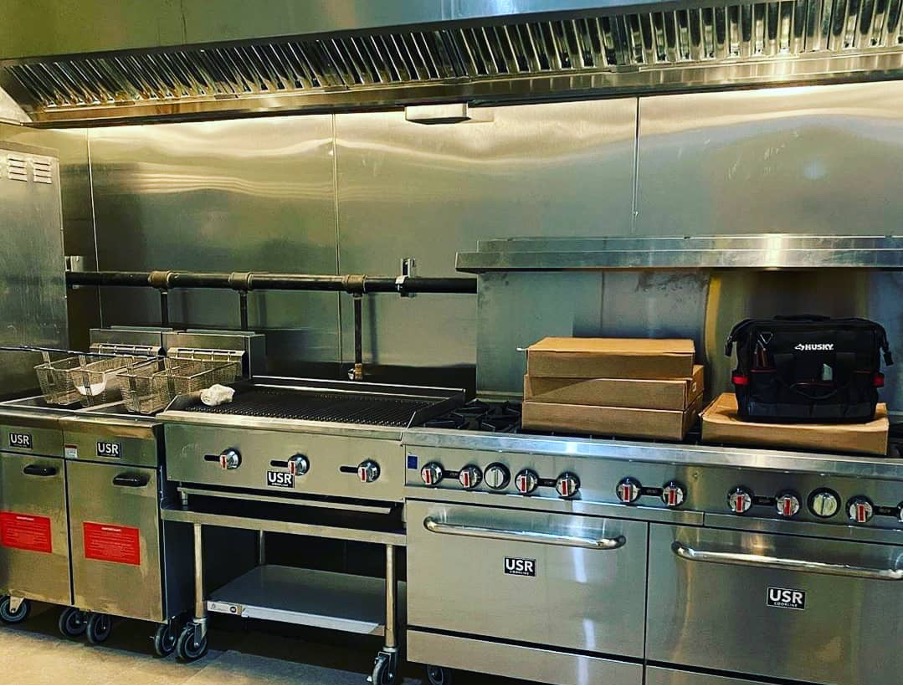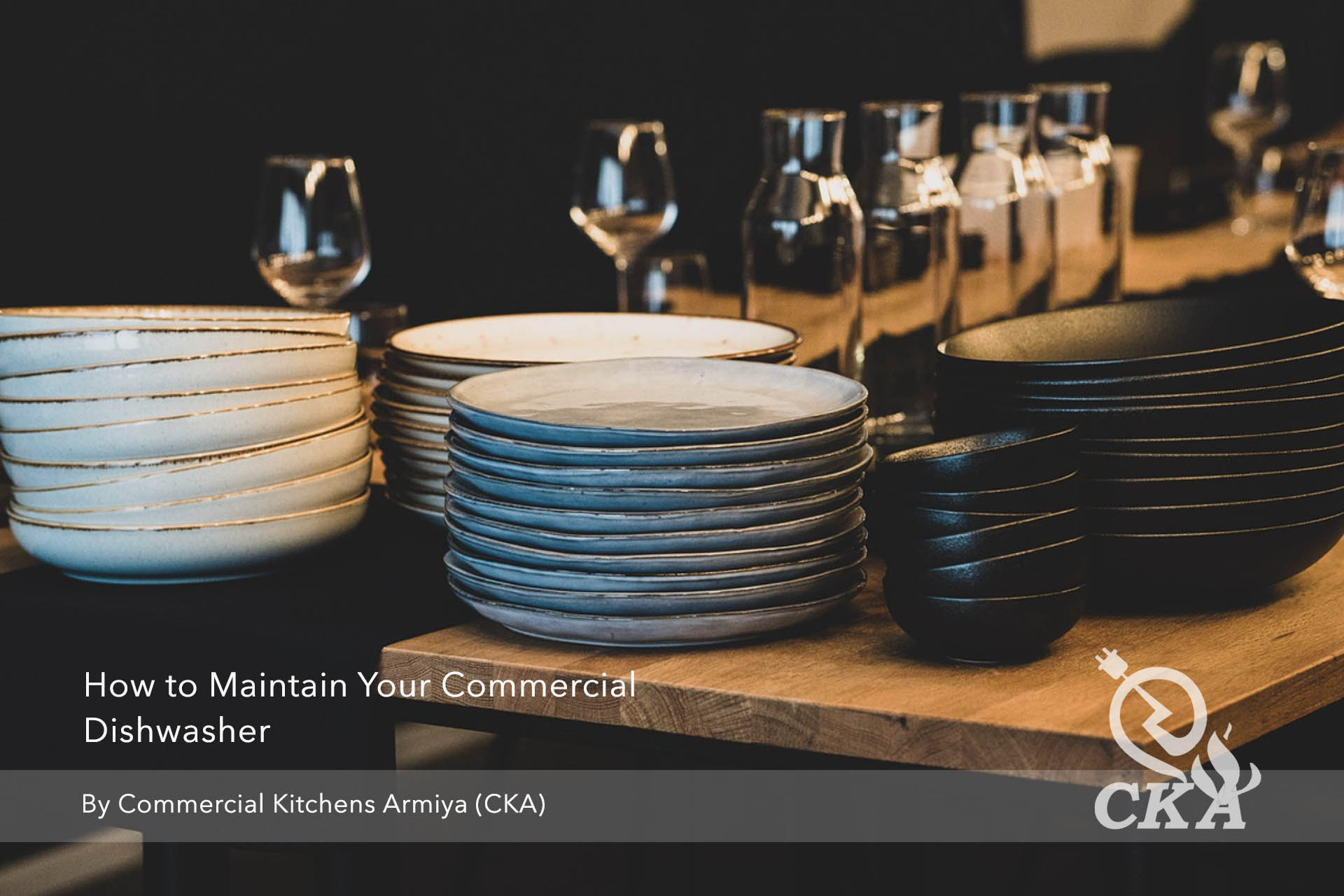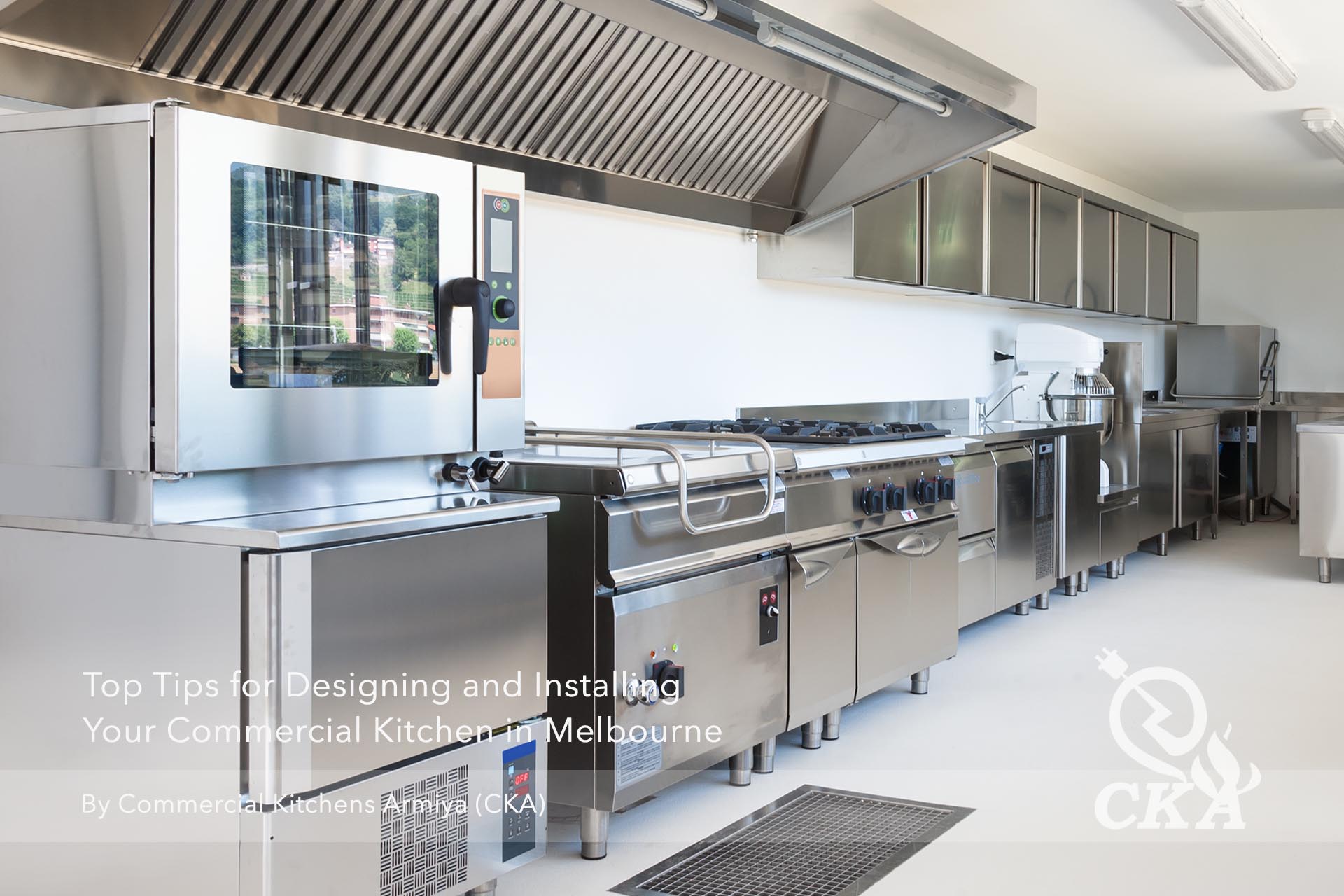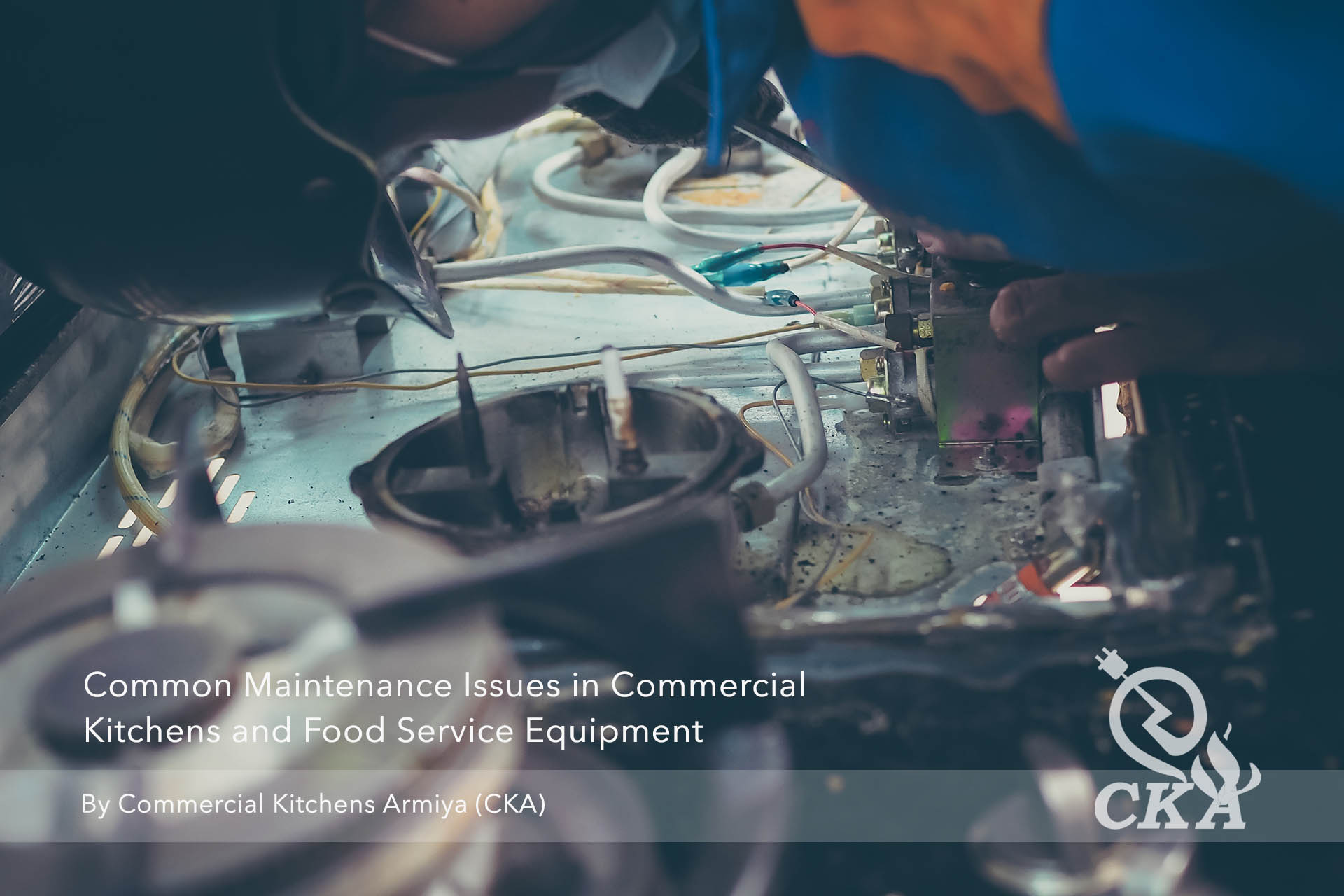
Commercial kitchens are purpose-built to produce large quantities of food efficiently while adhering to strict safety regulations. These facilities require carefully planned layouts and specialised equipment to ensure smooth operations and minimise delays. Regular inspections and proper licensing are also necessary to meet health and safety standards.
How Often Should Commercial Kitchen Equipment Be Cleaned?
To maintain hygiene and functionality, it’s essential to clean all commercial kitchen equipment at least once every 24 hours. This includes refrigerators, freezers, ovens, grills, deep fryers, sinks, and dishwashers. Additionally, vents and ducts should be inspected and cleaned regularly to remove grease and food build-up, ensuring a safe and efficient cooking environment.
What Are the Benefits of Regular Maintenance?
Maintaining clean and well-serviced kitchen equipment offers several advantages:
1. Lower Utility and Maintenance Costs
Appliances that use electricity, gas, or water operate more efficiently when kept clean and serviced regularly. This reduces energy consumption and maintenance expenses while also boosting staff morale and preserving the reputation of your establishment.
2. Reduced Equipment Failures
Significant equipment breakdowns can disrupt operations, leading to lost revenue and unhappy customers. Routine cleaning, inspections, and maintenance help prevent unexpected malfunctions, ensuring consistent performance and minimal downtime.
3. Improved Food Quality and Service
Clean and functional equipment directly impacts the quality of food and the speed of service. Regular upkeep ensures customer satisfaction and can even increase revenue through repeat business.
4. Extended Equipment Lifespan
Commercial kitchen appliances are expensive to repair or replace. Proper care and regular servicing, much like maintaining a vehicle, can significantly extend their lifespan, saving money in the long term.
5. Higher Resale Value
Well-maintained equipment retains better resale value, which can be beneficial when relocating or upgrading your kitchen. Alternatively, donating such equipment can provide potential tax benefits.
6. A Safer Work Environment
A clean and safe kitchen is crucial for employee well-being. Removing food residue, grease, and debris from equipment, alongside maintaining fire suppression systems, helps create a safer, more pleasant workspace.
Does Maintaining Kitchen Equipment Save Money and Energy?
Absolutely. Preventative maintenance not only helps you avoid unexpected downtime but also ensures kitchen appliances are clean and running efficiently, which saves both energy and money. Regular cleaning and servicing of commercial kitchen equipment are essential for long-term success. The cost of hiring a technician for emergency repairs far exceeds the expense of routine maintenance, not to mention the potential disruption to operations and dissatisfied customers who may not return due to service delays.
When Is the Best Time to Filter Fryer Oil?
Filtering fryer oil daily prevents food particles from burning and spoiling the oil, helping it last twice as long and saving you money. Regular filtering also improves the taste of your food, leading to happier customers. The ideal time to filter fryer oil is in the morning or after each meal service. This ensures the oil has cooled down, reducing the risk of burns to staff and avoiding delays during busy service times.
How to Keep Commercial Griddles and Grills Clean
Commercial griddles and grills are heavily used, from breakfast service through to dinner. Proper maintenance ensures their longevity and performance. Here’s how to clean a steel griddle plate: Allow the griddle to cool to room temperature. Use a griddle scraper to remove debris from the surface. Season the plate by applying oil and scrubbing with a griddle brick. For hard-to-reach areas, use a putty knife.
Commercial kitchen equipment, including appliances and cookware, is expensive to install and replace. However, with proper cleaning and maintenance, you can extend the lifespan of these utilities while saving money and energy. This guide has addressed some common questions about maintaining commercial kitchen equipment to help you keep your operations running smoothly.
Disclaimer
This website is aimed at disseminating information free of charge for the benefit of the public. We do not guarantee, and accept no legal liability whatsoever arising from or connected to, the accuracy, reliability, currency or completeness of any material contained on this website or on any linked site. We recommend that users exercise their own skill and care with respect to their use of this website and that users carefully evaluate the accuracy, completeness and relevance of the material on the website for their purposes. The material on this website is a summary only of the subject matter covered and is not intended to be nor should it be relied on as a substitute for legal or other professional advice. Users should obtain any appropriate professional advice relevant to their particular circumstances. The material on this website may include the views or recommendations of third parties, which do not necessarily reflect the views of ours, or indicate its commitment to a particular course of action.

